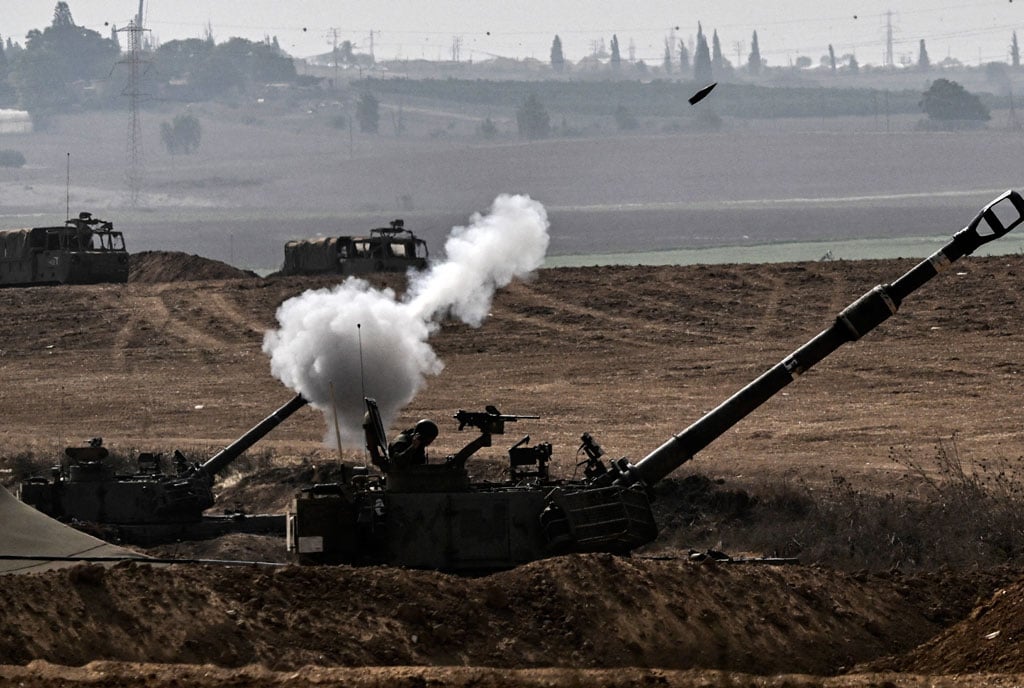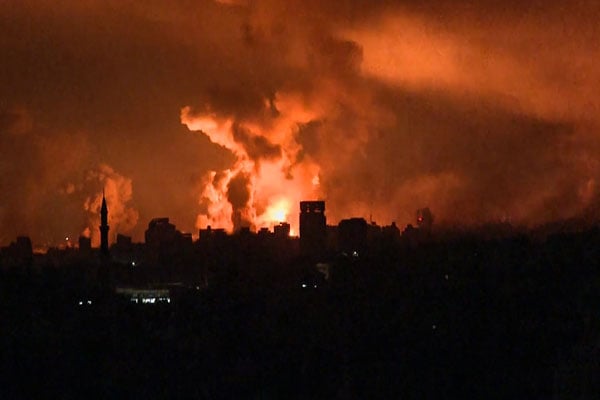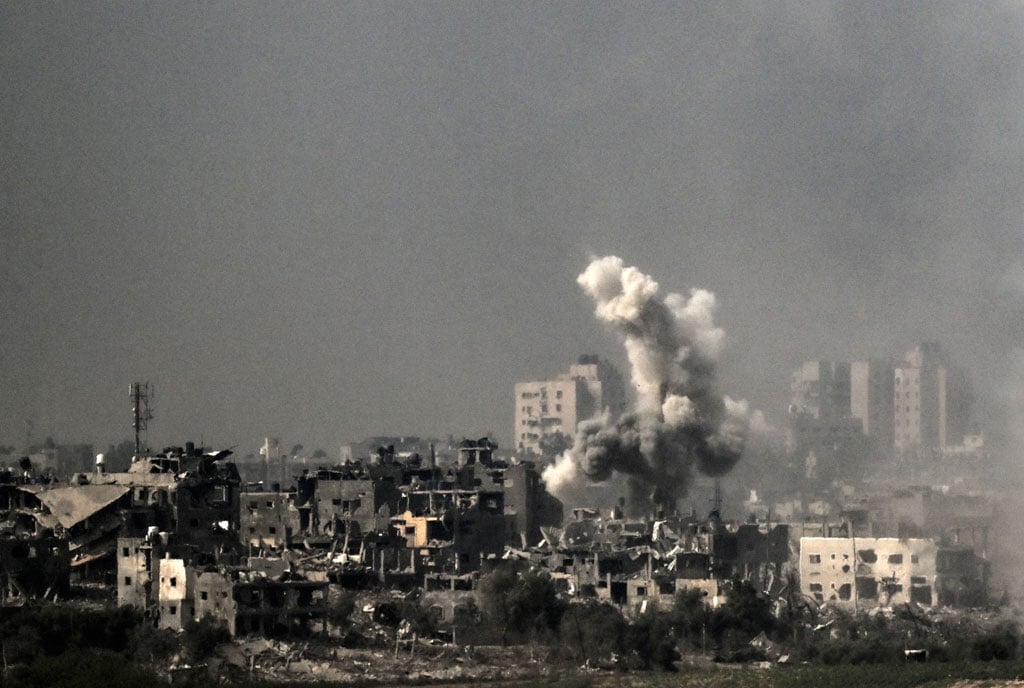Prime
FACTS: Latest developments in the Hamas-Israel war

An Israeli army M109 155mm self-propelled howitzer fires rounds toward the Gaza Strip from a position in southern Israel across the border on October 28, 2023. PHOTO/AFP
What you need to know:
UN chief Antonio Guterres warned that Gaza faces "an unprecedented avalanche of human suffering."
Fighting in the Gaza Strip raged for a 22nd day Saturday after Hamas militants launched a surprise attack on Israel, killing at least 1,400 people, mostly civilians, according to Israeli officials.
Since the October 7 attack, the health ministry in the Hamas-run Gaza Strip says more than 7,700 Palestinians have been killed by Israel's relentless retaliatory bombardments, mainly civilians and many of them children.
Here are five key developments from the past 24 hours:
Israeli strikes intensify
Israel pounded Gaza with air and artillery strikes on Saturday after an intense night of attacks when the army said 150 "underground targets" were hit.
"Terror tunnels, underground combat spaces and additional underground infrastructure" were struck, the military said, adding that "several Hamas terrorists were killed".
The overnight onslaught has destroyed hundreds of buildings and "changed the landscape" of northern Gaza, the territory's civil defence service said Saturday.
More air raids and artillery shelling were reported after daybreak but they were less intense than overnight.
This comes after Israeli military spokesman Daniel Hagari said Friday night that the army was "extending" its ground operations after two straight nights of tank incursions.
Hamas's armed wing on Friday night said it was fighting Israeli troops in northern Gaza's Beit Hanoun and the more central east Bureij.
Communications cut
Internet access and the phone network were completely cut across the Gaza Strip on Friday ahead of the intensification in Israeli operations.
Human Rights Watch warned the information blackout "risks providing cover for mass atrocities and contributing to impunity for human rights violations."
AFP journalists in Gaza confirmed they were only able to communicate in limited areas where they could connect to Israeli networks across the border.
The Palestinian Red Crescent said the "disruption affects the central emergency number 101 and hinders the arrival of ambulance vehicles to the wounded" in the ongoing strikes.
Humanitarian truce call
The UN General Assembly on Friday called by a large majority for an "immediate humanitarian truce" in Gaza.
The non-binding resolution, criticised by Israel and the United States for failing to mention Hamas, received 120 votes in favour, 14 against and 45 abstentions from UN members.
Hamas welcomed the General Assembly call. Israel's ambassador to the world body, Gilad Erdan, called it an "infamy".
Families of Hamas hostages 'worried'
Families of the mostly Israeli hostages held by Hamas militants in Gaza have now demanded an immediate government explanation about the fate of the captives after the army intensified strikes on the Palestinian territory.
The Hostages and Missing Families Forum said relatives were angry over the "absolute uncertainty regarding the fate of the hostages held (in Gaza), who were also subject to the heavy bombings".
'Avalanche of human suffering'
UN chief Antonio Guterres warned Friday that Gaza faces "an unprecedented avalanche of human suffering" due to lack of food, water and power during Israeli bombing in response to the Hamas attack.
"I repeat my call for a humanitarian ceasefire, the unconditional release of all hostages, and the delivery of life-saving supplies," Guterres said.
Before the war, about 500 trucks a day rolled into Gaza to bring in supplies, but in recent days the average is down to only 12, which enter from the Rafah border crossing with Egypt, he said.





